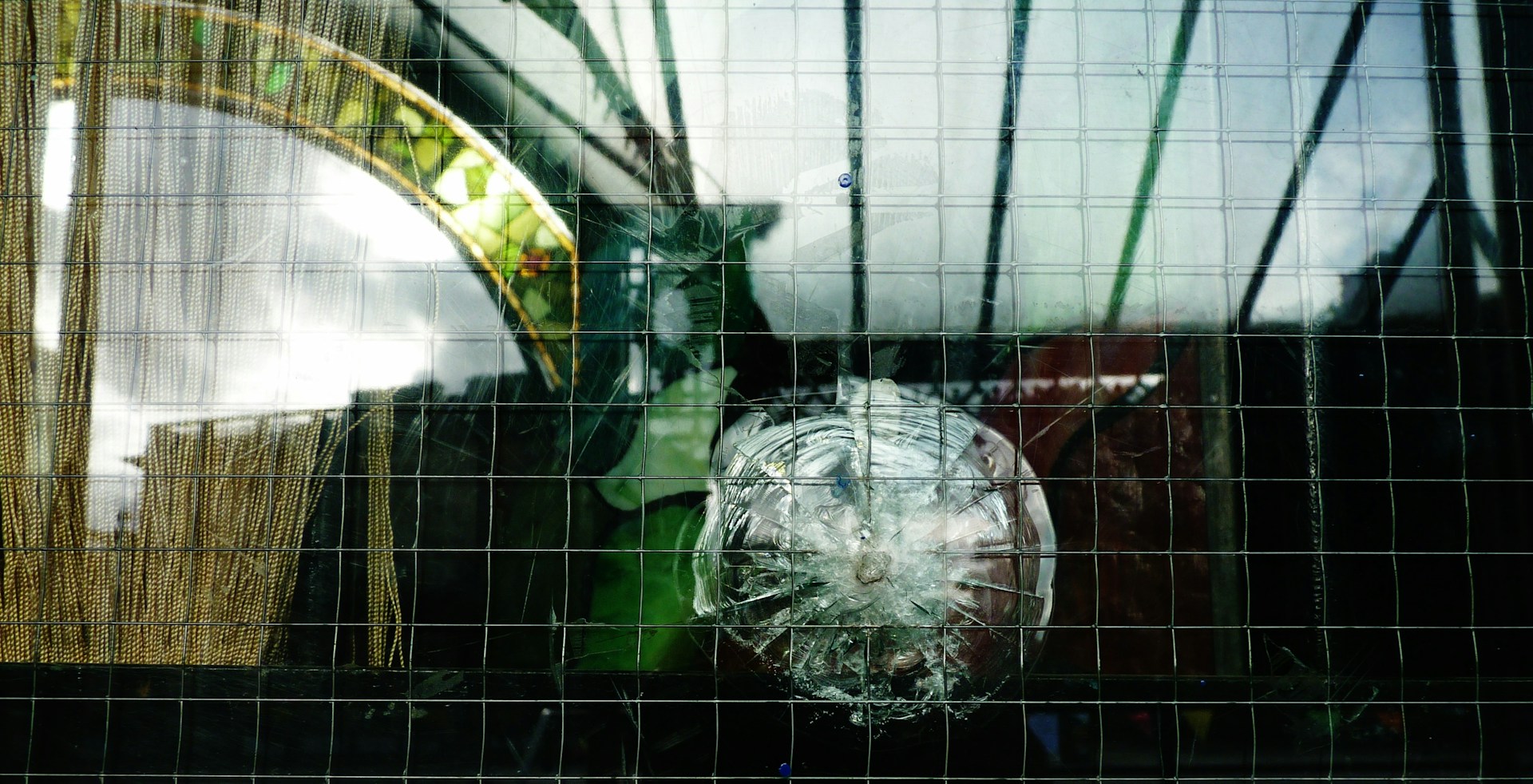Armored Advances: A Deep Dive Into Bulletproof Technology

Explore the cutting-edge world of bulletproof technology with ‘Liberty Shielding,’ diving deep into the innovations shaping the future of safety.
The emergence of bulletproof technology stands as a formidable solution in a time when security threats are evolving and ushers in a new era of stronger security measures. As the world grapples with diverse threats, ranging from physical attacks to unforeseen dangers, the adoption of bulletproof technology has gained unprecedented traction. This innovative approach not only promises heightened protection but also represents a paradigm shift in addressing the pressing need for robust security solutions. From personal safety concerns to safeguarding critical infrastructure, the rise of bulletproof technology underscores the urgency of a reliable and effective means to counter potential threats. From bulletproof windows to doors and more, this technology has been effectively deployed to mitigate and contain a wide array of security risks. Let’s delve into the evolution and applications of bulletproof technology, unraveling its significance in fortifying security landscapes and meeting the challenges of our increasingly complex world.
What Exactly Is Bulletproof Technology?
Bulletproof technology, at its core, involves the application of materials and designs capable of resisting or absorbing the impact of bullets. However, its significance extends beyond physical protection, encompassing a spectrum of security solutions tailored to safeguard both tangible and intangible assets. In the financial sector, this may manifest as advanced encryption methods or blockchain systems fortifying transactions and sensitive customer data, while software companies rely on robust cybersecurity protocols to defend against cyber threats.
The effectiveness of bulletproof technology hinges on proactive threat detection, adaptability to evolving risks, and a holistic approach covering various vulnerability points. Key features include high durability, resistance to impactful forces, and the ability to withstand intrusive cyberattacks, collectively shaping a shield that not only resists bullets but also shields our increasingly digital world from a diverse range of threats.
Evolution Of Bulletproof Technology In The Digital Age
The development of bulletproof technology has closely paralleled the unrelenting expansion of technical improvements in the dynamic terrain of the digital era. This change has had a significant impact on three important businesses: finance, healthcare, and government. The market for bulletproof glass, according to statistics, is projected to reach an astounding US $6.94 billion by 2022 and is a remarkable witness to this progress. With a predicted compound annual growth rate (CAGR) of 13.60% from 2023 to 2028, projections show a significant growth trajectory and a market value of US $14.97 billion by that time. A number of variables are driving this growth, most notably the rise in gun violence and security risks throughout the world.
The surging demand for advanced security solutions in critical infrastructure, encompassing government buildings, airports, and banks, is another driving force. Importantly, significant advancements in material science and technology have fueled the market’s growth by encouraging the creation of more durable and adaptable bulletproof materials. The development of bulletproof technology serves as a testament to innovation and resiliency in the face of a changing security landscape as industries adjust to a time of unprecedented challenges.
How Does Bulletproof Technology Work?
Bulletproof technology works by utilizing various materials and designs to protect against different types of threats.
Encryption
Bulletproof technology relies on sophisticated encryption methods to ensure the security of data both in transit and at rest. Encryption serves as a critical barrier, rendering sensitive information unreadable to unauthorized entities. Commonly employed encryption techniques and algorithms form the backbone of this protective layer, fortifying digital assets against potential breaches and safeguarding confidentiality.
Multi-Factor Authentication (MFA)
Multi-factor authentication plays a pivotal role in elevating user authentication beyond traditional password-based systems. Recognizing its importance, organizations implement MFA methods to add an extra layer of security. These methods may include something the user knows (password), something the user has (security token), and something the user is (biometric verification).
Network Security Measures
In the realm of bulletproof technology, robust network security forms a crucial defense line. This involves the implementation of firewalls, intrusion prevention systems, and secure configurations to establish a secure digital perimeter. Adhering to secure network practices is imperative for preventing unauthorized access, detecting potential threats, and fortifying the overall integrity of the system.
Regular Software Updates and Patch Management
Maintaining the resilience of bulletproof technology requires keeping software up to date through regular updates. Addressing potential vulnerabilities that malicious actors might exploit requires this practice. The significance of patch management is underscored, as it ensures a proactive approach to fortifying the software environment against emerging threats and vulnerabilities.
Continuous Monitoring and Incident Response
A comprehensive bulletproof strategy involves continuous monitoring and a well-defined incident response plan. Continuous monitoring allows for the timely detection of security incidents, enabling swift and effective responses. The incident response plan, a cornerstone of bulletproof technology, outlines procedures to address and mitigate security incidents promptly, minimizing potential damage and ensuring the resilience of the overall security infrastructure.
Examples Of Bulletproof Technologies
Bulletproof technology comes in various forms, each tailored to cater to unique security needs. Some common uses of bulletproof technology include:
X-Ray Shielding
Bulletproof technology extends its capabilities beyond physical protection to encompass specialized applications like X-ray shielding. In environments where radiation exposure is a concern, such as medical facilities and industrial settings, bulletproof materials are adapted to provide effective shielding against X-rays. These innovative solutions not only enhance safety but also demonstrate the versatility of bulletproof technology in addressing diverse security challenges, ensuring protection beyond conventional threats.
Bullet Resistant
Bullet-resistant technology represents a crucial facet of the evolving security landscape, offering protection against ballistic threats. This application finds widespread use in critical sectors such as law enforcement, the military, and civilian security. Bullet-resistant materials, ranging from advanced fabrics to laminated glass, are strategically employed to mitigate the impact of projectiles, providing a vital layer of defense in scenarios where the risk of ballistic threats is prevalent.
Fire-Rated Solutions
In environments where the threat extends beyond projectiles to include fire hazards, fire-rated solutions within the realm of bulletproof technology become indispensable. These solutions integrate fire-resistant materials into the protective framework, ensuring not only ballistic resistance but also the ability to withstand and contain fires. Commonly used in critical infrastructure like government buildings and financial institutions, fire-rated bulletproof technology offers a comprehensive approach to security, addressing both physical and environmental threats with equal efficacy.
The Benefits Of Incorporating Bulletproof Technology In Your Business
The benefits of implementing bulletproof technology in your business are numerous and varied, depending on the specific application and industry. Some key advantages include:
Enhanced Security
Incorporating bulletproof technology into your business translates to a significant enhancement in security measures. Whether safeguarding physical assets or digital information, the robust protective features of bulletproof technology serve as a formidable deterrent against a range of potential threats. This heightened security not only protects the well-being of personnel but also fortifies the integrity of critical business operations, instilling confidence among stakeholders and fostering a secure working environment.
Increased Reliability
One of the key advantages of integrating bulletproof technology is the substantial increase in reliability across various aspects of business operations. From fortified physical structures using bulletproof materials to secure digital systems with advanced encryption, businesses can rely on these technologies to withstand unforeseen challenges. The enhanced reliability ensures uninterrupted continuity, mitigating potential risks and contributing to the overall resilience of the business infrastructure.
Cost Savings
While the initial investment in bulletproof technology may seem substantial, the long-term benefits often translate into significant cost savings. The robust security measures provided by these technologies can prevent costly incidents such as theft, vandalism, or cyberattacks. The avoidance of potential financial losses, coupled with minimized downtime due to enhanced security, positions bulletproof technology as a strategic investment that ultimately contributes to the financial health and stability of the business.
Adaptability To Changing Environments
In a dynamic business landscape, adaptability is paramount. Bulletproof technology excels in its capacity to adapt to changing environments and evolving threats. Whether facing new security challenges or technological advancements, the flexibility inherent in bulletproof solutions ensures that businesses can stay ahead of the curve. This adaptability not only future-proofs the business against emerging risks but also positions it as an agile and responsive entity in an ever-changing market.
Industry-Specific Applications Of Bulletproof Technology
The versatility of bulletproof technology allows for its application in various industries, each with unique security needs. Some common, industry-specific applications include:
Banking & Finance
In the banking and finance sector, where safeguarding assets and sensitive information is paramount, bulletproof technology finds extensive application. This includes the implementation of bullet-resistant glass and materials in bank branches, secure vaults, and ATMs. Additionally, advanced encryption and cybersecurity measures are employed to protect financial transactions and customer data, ensuring a comprehensive approach to security in the highly regulated financial landscape.
Healthcare
Hospitals, clinics, and healthcare facilities benefit from the versatile applications of bulletproof technology to ensure the safety of both patients and medical professionals. Bullet-resistant glass may be integrated into reception areas and emergency rooms, offering protection in high-stress situations. In addition, secure storage areas for pharmaceuticals and sensitive medical equipment utilize bulletproof materials, addressing the unique security requirements of the healthcare industry.
Government Agencies
Government agencies often face heightened security threats, making the application of bulletproof technology crucial. Government buildings, embassy facilities, and other critical installations utilize bullet-resistant materials in construction. Moreover, digital security measures, including advanced encryption and secure communication protocols, are implemented to protect classified information. The adaptability of bulletproof technology caters to the specific needs of governmental security protocols.
Commercial & Residential Properties
In the realm of commercial and residential properties, bulletproof technology is employed to fortify structures against potential threats. High-profile corporate offices may incorporate bullet-resistant glass in windows and doors, providing an added layer of security. Residential properties of public figures or individuals seeking enhanced security measures may also benefit from the discreet integration of bulletproof materials, ensuring the safety and peace of mind of occupants in varying environments.
Empower Your Security With Liberty Shielding – Take Action Now!
In conclusion, incorporating bulletproof technology into your business offers enhanced security, increased reliability, cost savings, and adaptability to changing environments. Its versatile applications cater to the specific needs of various industries, making it a strategic investment for businesses of all sizes. At Liberty Shielding, we are committed to providing top-of-the-line bulletproof products and working closely with clients to provide customized solutions that cater to their unique security needs. Take action today and invest in the robust protection of our bulletproof technology to safeguard your business, assets, and personnel from potential threats. Let us be your partner in securing your future – contact us now!
Explore More News

Fire Rated Glass for Aircraft Interiors: Challenges and Solutions
Embark on a journey to elevate aviation safety to new heights with Liberty Shielding’s pioneering innovation – fire rated glass…

Fire Resistant Glass: Key Features and Applications in Manufacturing
Step into the realm where security harmonizes with innovation. Unveil the extraordinary attributes of our fire-resistant glass, meticulously crafted to…

Bullet-Proof Windows: Balancing Safety and Aesthetics
Step into the future of unparalleled security with Bullet-Proof Windows from Liberty Shielding. As the industry leader, we redefine safety…
